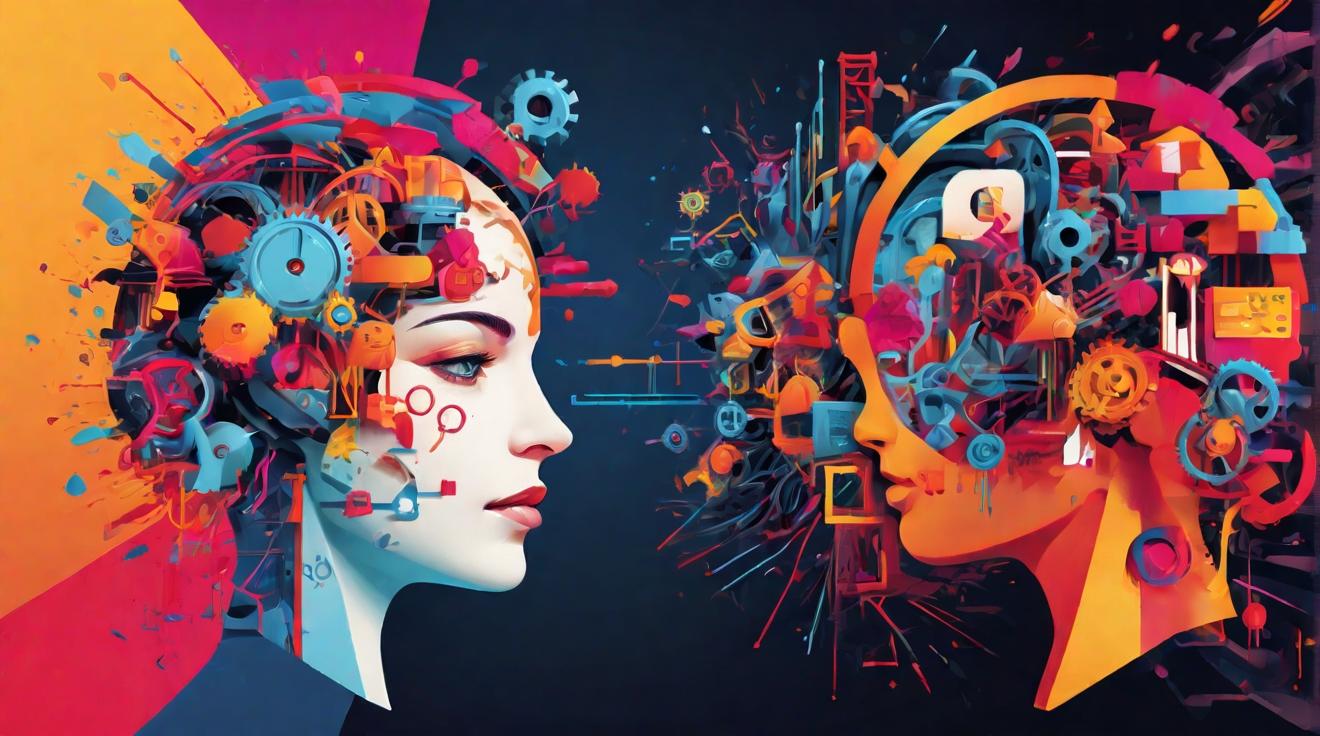The Dichotomy of Progress: The Winners and Losers in the AI Revolution
In an era where artificial intelligence (AI) continues to thrive, defining the frontiers between innovation and tradition, the recent insights shared by Palantir CEO, Alex Karp, at the World Governments Summit in Dubai bring to light the complexities and dualities inherent to this technological crescendo. The rapid advancement and integration of AI across industries and societies signify a monumental shift, promising to revamp how decisions are made, operations are carried out, and futures are shaped. Yet, this transformation heralds a period of disparity, distinguishing clear winners and losers in its wake.
The potential of AI to revolutionize every sphere — from healthcare and finance to every conceivable domain in between — is unmatched. It stands as a testament to human ingenuity, promising optimized efficiency, enhanced decision-making capabilities, and the unlocking of hitherto unimagined possibilities. However, as Karp elucidates, this technological utopia is not without its shades of dystopia.
Winners in this AI revolution are earmarked as those—be it individuals, corporations, or governments—that not only embrace this technology but deftly wield it to catalyze positive societal and economic changes. These entities understand the profound capabilities AI harbors and are quick to integrate such technologies to fortify their standing and operational efficiency.
Conversely, the losers in this narrative are those who resist this inexorable wave of change. Entities and individuals who eschew AI, reluctant to adapt or incorporate it into their modus operandi, are poised on the brink of significant disadvantage—an admonition about the perils of inertia in an epoch characterized by relentless advancement.
Karp’s discourse is not merely a celebration of AI but a clarion call for strategic engagement with this formidable technological force. The imperative to foster an ecosystem conducive for the ethical development, deployment, and integration of AI is underscored. This comprehensive framework encompasses ethical deliberations, regulatory scaffolding, and robust public-private partnerships to ensure AI’s trajectory remains aligned with societal welfare and equitable progress.
As we stand at this inflection point, where the future of AI dangles between utopian innovation and potential exacerbation of existing disparities, Karp’s insights serve as a guiding beacon. The discourse propels us towards a future where AI’s vast potential is harnessed judiciously, ensuring its dividends are not just colossal but equitably distributed.
This narrative compels an introspective and proactive approach towards AI, urging a collective striving towards a future where technology acts as a great equalizer rather than a divider. The journey through the verdant yet unpredictable landscape of AI is fraught with challenges and opportunities alike. It beckons a shift from mere passive observation to active, ethical, and innovative engagement, steering us towards a horizon where progress and equity are inextricably linked.
In summarily navigating these currents, the essentiality of a supportive ecosystem for AI’s responsible development and implementation is crystallized. It lays the groundwork for a future where AI transcends being a mere technological marvel to become a cornerstone of societal advancement and inclusivity.
The dialogue initiated by Karp is not just reflective but directional, charting a path towards realizing the full spectrum of AI’s potential while consciously mitigating its risks. As we venture further into this AI-driven era, the choice between becoming a winner or loser hinges on adaptability, foresight, and the collective will to forge a future where technology serves humanity in its entirety, ensuring no one is left behind in the relentless march toward progress.
Analyst comment
Positive news: The article highlights the potential of AI to revolutionize various industries and bring about positive societal and economic changes. It emphasizes the importance of embracing and integrating AI technology.
Market analysis: The market for AI technologies and services will continue to grow as more industries and entities recognize the benefits and potential of AI. Companies that adapt and harness AI will likely gain a competitive edge, while those resistant to change may face significant disadvantages. The market will require supportive ecosystems, ethical development, and regulatory frameworks to ensure responsible implementation and equitable progress.













